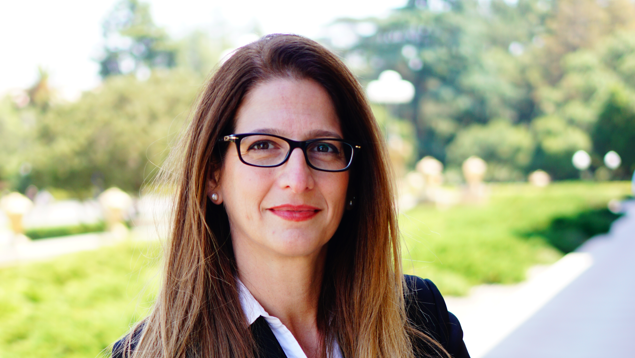
“You have to look at the map and know that California is much more than Silicon Valley”
Sharon Vanek, Executive Director of the California Israel Chamber of Commerce, joined CTech to discuss the appeal of the Golden State despite its local challenges
For Israelis looking to expand their operations in the United States, there appear to be two main draws: New York and California. However, while both are good starting points for companies to grow their businesses, the latter is currently battling its own hurdles for newcomers, mainly the high cost of living and strict regulatory obstacles that don’t exist in other states.
“California cannot compete in terms of cost of living. It’s expensive, period,” said Sharon Vanek, Executive Director of the California Israel Chamber of Commerce [CICC]. “Unfortunately, we don't see incentives in terms of welcoming companies to open their offices or headquarters in California, like tax breaks or other incentives. What we do see is an invitation to come to California because this is where everyone else is.”
The CICC is a U.S. entity and the oldest organization that oversees the relationship between California and Israel. Established in the early 1990s, the non-profit helps stakeholders form healthy relationships between economic entities in both states with headquarters based in Silicon Valley, known by many in Israel as the central high-tech hub in the world. The CICC helps startups, corporates, hospitals, government agencies, research agencies, and investors with their business opportunities through networking events, seminars, conferences, and meetups.
Today, the Israeli presence in California speaks for itself. As of this year, the state serves as the global or U.S. headquarters for a record-breaking 35 Israeli-founded unicorns, and according to data provided by the CICC, 57 California headquartered investors (54 of which are from the Bay Area) have invested in 750 Israeli startups. Silicon Valley is the birthplace of famous companies like Apple (1976), Google (1998), and Intel (1968), which is today Israel’s largest private employer. Many of these legacy companies have also expanded in Startup Nation: Intel, Oracle, and Cisco all have an R&D presence in Israel.
“If you want to be heard, if you want to be seen, if you want to schmooze with the right people, this is where you need to be,” Vanek added. While the Valley is seen by many as synonymous with the state, it is important to remember that in sheer geographical terms, California is more than 20 times bigger than Israel and its population is roughly four times as large, with roughly 40 million living in the country’s greatest economy and the fifth largest globally in terms of nominal GDP ($3.6 trillion as of 2022).
Outside of Silicon Valley, Vanek urges Israeli companies looking to expand to California to “think about where their customers are” and explore different cities or regions that might cater to specific company needs. “If they’re in agtech, I would advise them to drive to Selina, the capital of agriculture in California… Because the state is so big, it depends on if you want the leafy greens, the orchid, the rice, or grains. You have to look at the map and know that California is much more than Silicon Valley.”
The Golden State might be able to boast a large economy home to several industries like tech, entertainment, and agriculture, but the writing is on the wall for some who cite recent mismanagement by the local government as a reason to leave for somewhere else. Its high cost of living remains one of the highest in the U.S., the state faces major traffic congestion and homelessness epidemics, and recent years have seen its population continue to decline as businesses and families move to more affordable and less regulated neighboring states.
Since the pandemic, the state of Texas has stolen the headquarters of software companies like HP Enterprise, Oracle, and Tesla, and if these systemic problems continue, Israelis might be tempted to look elsewhere when relocating or expanding to the United States.
“It’s a very long process for any other state to take the place of California,” added Vanek. “Yes, we see people leave California, and we do see how Tesla moved out of California, but it doesn't mean they do not have a huge operation in California.”
It appears that today California is still the biggest and best place to be for new companies and young foreign ones looking to land in the United States - but the local government needs to address issues now to help it maintain its position in the future. For now, the CICC will continue to help Israelis find a footing among veteran pioneers like Zuckerberg, Page, and Cook.
“Countries come to Israel to study the secret sauce of Startup Nation and how we have so many other advancements, and I think it’s the same for California,” she concluded. “[But] I don't think anyone is naive, I think it is natural that other states will grow alongside California.”















